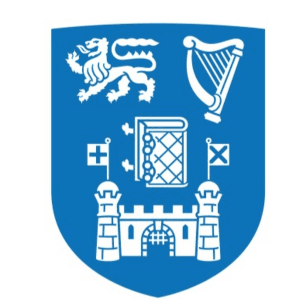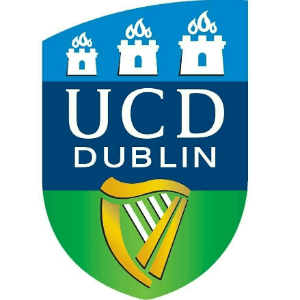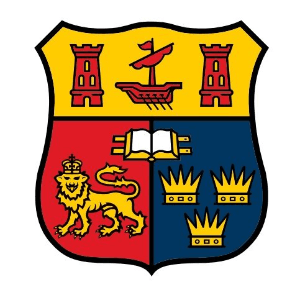Explore By
 Exams
Exams
 Countries
Countries
 Expenses
Expenses
 Universities
Universities
Study in Ireland has become a preferred choice for higher education, attracting over 35,000 international students from more than 161 countries. With nearly 8 universities featured in the top 1000 of the QS World University Rankings 2024, education in Ireland ensures access to top-tier institutions and a vibrant academic environment. Study in Ireland for international students offers world-class facilities, a friendly atmosphere, and ample opportunities for both personal and professional development. If you are looking to study in Ireland from India, you’ll find a welcoming and supportive educational experience.
Ireland is a top destination for international students, with hundreds of recognized universities offering over 5,000 courses. The country's affordability and high-quality education attract students from around the world, making India the second-largest source of international students to Ireland after China. For those considering study in Ireland from India, the country offers exceptional opportunities and an enriching educational experience. If you are considering study in Ireland, here are some benefits of study in Ireland for Indian students.
World-Class Research: Ireland's universities rank in the top 1% globally for research in Nanotechnology, Chemistry, Material Sciences, and Mathematics.
Extended Stay Option: Postgraduate students can stay for up to 24 months after graduation to find employment.
Work Opportunities: Student visas allow working 20 hours per week during term and up to 40 hours per week during holidays.
Strong Employment Prospects: Over 90% of graduates from many Irish institutions secure jobs, showcasing excellent career opportunities.
Quality of Life: Recognized as the 16th happiest country in the world, Ireland provides a friendly atmosphere and a thriving economy, attracting students from more than 160 countries.
The admission process differs from college to college, but the following documents remain/general requirements remain a staple for admission to higher education in Ireland.
Proof of English proficiency (TOEFL/IELTS)
GMAT/GRE for postgraduate programs
Letters of recommendation
Statement of purpose
Academic transcripts
Copy of a valid passport
Higher education in Ireland consists of universities, specialist colleges, and institutes of technology. 7 public universities from Ireland were ranked within the top 700 in the QS World University Rankings. These institutes are also among the top 1% of research universities in the world in terms of research impact.

Trinity College Dublin
Dublin, Leinster
Know More

University College Dublin
Dublin, Leinster
Know More

University College Cork
Cork, Munster
Know More
With over 5,000 courses available, Ireland attracts international students for its diverse academic opportunities. Renowned for having the world's 20th best education system, according to US News and World Report, Ireland offers the best courses to study in Ireland across various fields. Study in Ireland for international students provides access to a wide range of programs and disciplines.
Northern Ireland offers top-quality education, with Queen’s University Belfast and Ulster University both ranked in the top 50 UK universities for 2025. The best subjects to study in Northern Ireland include Agriculture & Forestry (1st at Queen’s), Pharmacology & Pharmacy (2nd at Queen’s), Social Work (2nd at Queen’s), and Information Technology & Systems (Queen’s). Ulster University excels in Optometry, Ophthalmics & Orthoptics.
Ireland has many well-regarded and affordable schools, making it a great choice for higher education. The cost of study in Ireland for Indian students is relatively reasonable at institutions such as the University of Limerick, University College Cork, Cork Institute of Technology, and St. Patrick’s College. The duration of graduation courses is mostly 12 months because of their intensive nature.
Level of Education | Tuition Fee ( EUR/Year) | Tuition Fee (INR/Year) |
Undergraduate programs | 5,000 to 53,000 | 4.52 lakhs to 48 lakhs |
Postgraduate programs | 5,000 to 49,000 | 4.52 lakhs to 44.37 lakhs |
Doctoral degrees | 15,000 to 20,000 | 13.58 lakhs to 18.11 lakhs |
Living Expenses
When considering study in Ireland, it's important to note that the cost of study in Ireland for Indian students tends to be higher in Dublin compared to other cities like Cork, Limerick, and Galway. Overall, the cost of living in Ireland is higher than in 87% of countries globally.
Type of Expenses | Cost (EUR/Month) | Cost (INR/Month) |
Utilities (like electric/gas/refuse) | 58 to 75 | 5,252 to 6,792 |
Meals | 315 to 450 | 28,527 to 40,753 |
Travel expenses (monthly bus ticket expense) | 20 to 50 | 1,811 to 4,528 |
Book & Supplies | 90 to 135 | 8,150 to 12,226 |
Mobile and internet | 30 to 60 | 2,716 to 5,433 |
Miscelleneous | 45 to 150 | 4,075 to 13,584 |
The Irish government provides €5 million annually for research in higher education. To support study in Ireland for Indian students, it also offers a variety of scholarships. These opportunities enhance education in Ireland for international students.
Scholarship Program | Eligible Candidates | Benefits | Application Deadline |
NUI Galway International Students Scholarships | Non-EU students in UG, PG, and research programs | $2,200 - $5,700 for UG & PG; $18,300/year for research | Varies by scheme |
Centenary Scholarship Program (DIT) | Non-EEA/EU students in full-time Master's programs at DIT | 50% tuition fee waiver | May 18 |
Maynooth University Scholarships | Undergraduate and postgraduate students | $1,200 - $3,440 per year, depending on the scheme | February 2, 2024 |
University College Cork Excellence Scholarships (PhD) | EU and Non-EU PhD students | EU fees covered; Non-EU students must pay the balance | May 1, 2024 |
Trinity College Dublin Scholarships | Global students or specific country students | $5,700 - $11,400, varies by type | June 15, 2024 |
Central Bank of Ireland Undergraduate Scholarships | International Students | $29,550 annual salary, 24 days’ leave, etc. | August 12, 2024 |
Accommodation costs for international students in Ireland can vary based on factors such as location, housing type, and amenities. Typically, Dublin has higher accommodation prices compared to other cities in Ireland.
On-Campus Accommodation:
Cost: €4,000 - €6,000 per year or more
Includes: Additional facilities such as study rooms, laundry services, and common areas; enhanced security; and a community atmosphere with other students
Benefits: Proximity to university facilities, easier integration into campus life, and often includes utilities like electricity, water, and internet
Off-Campus Accommodation:
Shared Apartments:
Cost: €1,000 - €1,200 per month
Details: Cost is divided among 4-6 roommates, resulting in a monthly expense of approximately €250 - €300 per person. Typically requires renting from private landlords or letting agencies
Benefits: Potentially lower overall cost, more flexibility in living arrangements, and a broader range of housing options in various locations
The Irish government provides two types of visas for international students who wish to study in Ireland.
Type | Duration |
C Study Visa | Less than 3 months |
D Study Visa | More than 3 months |
C Study Visa:
This short-stay visa is for students enrolled in brief courses, such as language programs or Irish language courses. With the C Study Visa, students are not permitted to work part-time during their study in Ireland.
D Study Visa:
This long-stay visa is for students enrolled in undergraduate, postgraduate, PhD, or diploma courses as part of their education in Ireland. With this visa, students can work part-time, up to 20 hours per week during the academic term and 40 hours per week during holidays.
Procedure
The entire process typically takes about 8 months, so it is advisable for candidates to apply for a student visa as soon as their admission to an institute is confirmed when planning to study in Ireland from India. Applicants can submit their visa application at the nearest Irish embassy up to 3 months before their planned arrival date.
Documentation
Paperwork and documentation are crucial for studying in Ireland. To ensure a smooth admission process, students must keep the following documents ready at all times when preparing to study in Ireland.
A current passport (passport needs to be valid for 12 months)
Passport-sized color photographs
Letter of acceptance or LOA from a recognized Irish institution
The score of English language proficiency (TOEFL/IELTS)
Proof of fee payment
Evidence of funds (€7,000) that can pay for your living expenses for the duration of your course
Evidence that accounts for gaps in your educational history
Medical insurance details
Biometric information
Evidence of academic ability (Academic scores) to pursue your chosen course
Ireland offers many job opportunities for graduates and has a low unemployment rate. With more than 33% of its population under 25, Ireland has the youngest population in Europe, which indicates good future growth for its industries.
Part-time Work Opportunities
In Ireland, student VISA allows international students to work for 20 h/week during their course and up to 40 h/week during holidays. Working part-time also enables students to gain practical exposure and working experience. Students can also undertake an internship in the workplace or businesses associated with the study institutions.
Full-time Work Opportunity/Post-study Work Opportunity
International students can remain in Ireland after completing their studies by applying for the "Third-Level Graduate Programme." This program allows graduates to stay for up to 24 months, depending on their course level. Graduates from Level 8 (undergraduate programs) and Level 9 (master’s programs) are eligible.
To obtain PR in Ireland after study, international students must secure a job in Ireland and stay for at least five years on an employment permit issued by the Department of Enterprise, Trade, and Employment.
Level of Education* in Ireland | Ireland Post Study Work Permit Duration |
Level 7 – Ordinary Bachelors Degree (three years courses) | 12 months |
Level 8 – Honors Bachelors Degree / Higher Diploma (four years courses) | 12 months |
Level 9 – PG Diploma/Masters Degree | 24 months |
Level 10 – Doctoral Degree / Higher Doctorate | 24 months |
Here are some of the top job roles available to international graduates in Ireland:
Job Role | Average Salary (EUR/Year) | Average Salary (INR/year) |
Finance Manager | 77,500 | 70.18 lakhs |
Aerospace Engineer | 50,900 | 46.09 lakhs |
Architect | 47,700 | 43. 19 lakhs |
B.D Manager | 65,900 | 59.68 lakhs |
Business Analyst | 48,500 | 43.92 lakhs |
1. Can someone study in Ireland for free?
Yes, some students can study in Ireland for free through the Free Fees Initiative, which covers tuition fees for certain undergraduate programs for EU/EEA/Swiss nationals and selected non-EU students who meet specific residency criteria.
2. Why should one study medicine in Ireland?
Studying medicine in Ireland is highly attractive due to its worldwide reputation for excellent medical training and education, high-quality teaching, and an international student-friendly environment. With English as the medium of instruction and excellent clinical placements and research opportunities, Ireland provides a top-notch education for aspiring medical professionals.
3. Why study in Ireland?
Study in Ireland is a great choice due to its high-quality education system, beautiful landscapes, and strong English proficiency. The country also offers a reasonable cost of living and convenient access to travel across Europe. Additionally, study in Ireland for international students provides a safe environment with a friendly atmosphere and a 2nd place ranking in the Global Peace Index.
4. How to study medicine in Ireland?
To study medicine in Ireland, undergraduate applicants need at least 480 CAO points from the Irish Leaving Certificate or equivalent, with a focus on science subjects and the HPAT-Ireland test. Graduate applicants require a degree with a minimum 2:1 classification and must pass the GAMSAT or MCAT. Irish, UK, and EU students apply through the CAO, while non-EU students apply directly to universities or via the IUMC. Admissions are based on CAO points and HPAT/GAMSAT scores, with no interviews typically required.
5. Can I get a job after studying MBA in Ireland?
Yes, you can find a job after completing an MBA in Ireland. About 90% of MBA graduates land jobs within 3 months and usually experience a salary increase of over 50% within 3 years. The typical annual salary ranges from €73,302 to €91,628. Indian graduates who study in Ireland can apply for a 1 to 2-year work permit, which can lead to permanent residency after 5 years if immigration requirements are met.
6. Can I work in the US after studying in Ireland?
Yes, you can work in the US after studying in Ireland. However, you will need to obtain a valid US work visa, such as an H-1B visa for specialty occupations. Your education in Ireland and experience can be valuable, but securing a job offer from a US employer is necessary to apply for the visa.
7. Is it possible to study in Ireland without IELTS 2024?
Yes, it is possible to study in Ireland without IELTS. For 2024 admissions, certain colleges and universities in Ireland don't require IELTS scores. Instead, they accept other language proficiency tests like Cambridge Proficiency, Cambridge Advanced, PTE, TOEFL, and the Duolingo English Test, depending on the specific requirements of the institution.
TOEFL
English language proficiency test
PTE
The computer-based English test
SAT
Standardized test administered by College Board
GRE
Admission test for graduates
GMAT
Test for Business and Management Programs
Confused which university to choose?
Use our recommendation engine to analyze your profile and recommend the most desirable programs that fit you.
Get Recommendation